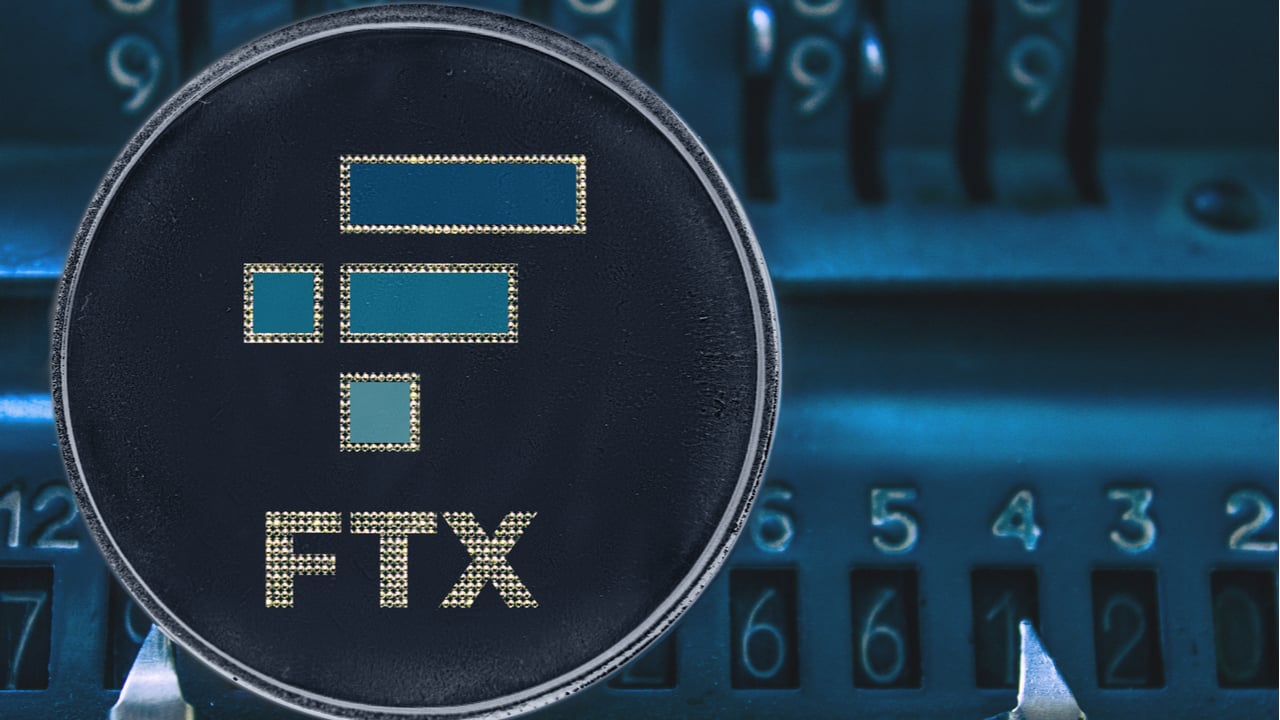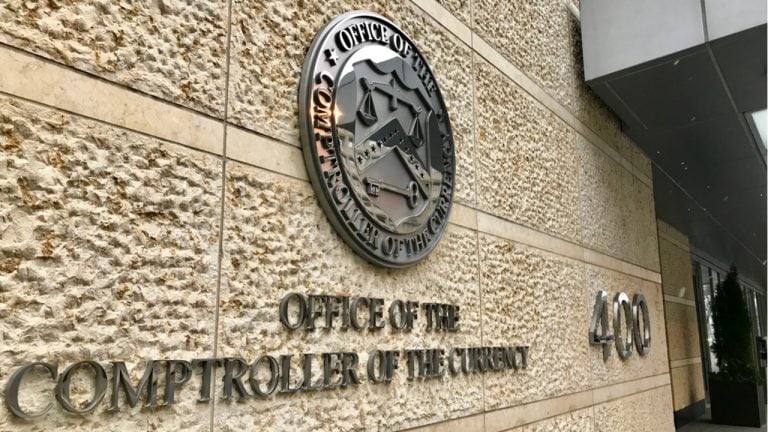 The U.S. Federal Trade Commission (FTC) has warned consumers about scams involving cryptocurrency ATMs. “There’s a new spin on scammers asking people to pay with cryptocurrency,” the FTC described. FTC’s Warning About Scams Involving Cryptocurrency ATMs The U.S. Federal Trade Commission (FTC) issued a scam alert involving cryptocurrency ATMs Monday. The consumer notice, posted by […]
The U.S. Federal Trade Commission (FTC) has warned consumers about scams involving cryptocurrency ATMs. “There’s a new spin on scammers asking people to pay with cryptocurrency,” the FTC described. FTC’s Warning About Scams Involving Cryptocurrency ATMs The U.S. Federal Trade Commission (FTC) issued a scam alert involving cryptocurrency ATMs Monday. The consumer notice, posted by […]
The FTC has alerted everyone to stay vigilant of a new payment scam involving impersonators and crypto ATMs.
The United States Federal Trade Commission published an alert of a new version of a scam involving cryptocurrencies. The scam has three key components, an impersonator, a QR code and a crypto ATM where the victims will be directed to send money.
According to the FTC, fraudsters pretend to be public officials, law enforcement agents or employees of local utility companies. The imposters also utilize dating apps and pretend to be potential romantic partners or call victims to announce that you’ve won a prize.
No matter how it starts, it always ends up with the scammer asking for money. If the user falls for the spiel, the scammer tells them to withdraw some cash and go to a crypto ATM. After that, they ask to purchase crypto through the ATM. Here, the QR code comes into play. They share the QR code of their wallet address with the victim. Because of this, once the victim scans the code, the purchased crypto assets would transfer to the fraudster’s account.
Cristina Miranda from FTC’s the Division of Consumer and Business Education explained:
“Here’s the main thing to know: nobody from the government, law enforcement, utility company or prize promoter will ever tell you to pay them with cryptocurrency. If someone does, it’s a scam, every time.”
Related: CertiK identifies Arbix Finance as a rug pull, warns users to steer clear
Meanwhile, a crypto crime report shows that in 2021, $7.7 billion worth of crypto was stolen from scam victims worldwide. The number reveals an 81% increase in comparison to 2020.
 FTX, a spot and cryptocurrency exchange, announced the launch of an NFT marketplace on its trading platform today. According to the information provided by CEO Sam Bankman-Fried, the marketplace will be available both for customers in the U.S. and in other locations. FTX is likely trying to capitalize on the popularity of these instruments, which […]
FTX, a spot and cryptocurrency exchange, announced the launch of an NFT marketplace on its trading platform today. According to the information provided by CEO Sam Bankman-Fried, the marketplace will be available both for customers in the U.S. and in other locations. FTX is likely trying to capitalize on the popularity of these instruments, which […] The market capitalization of all 10,722 cryptocurrencies in existence is around $1.42 trillion on Wednesday and during the last 24 hours, all of these crypto-assets combined lost 3.92%. Meanwhile, bitcoin captures 45.73% of the entire $1.42 trillion capitalization and ethereum commands 17.8%. As both of these leading assets have improved this week, seven-day changes against […]
The market capitalization of all 10,722 cryptocurrencies in existence is around $1.42 trillion on Wednesday and during the last 24 hours, all of these crypto-assets combined lost 3.92%. Meanwhile, bitcoin captures 45.73% of the entire $1.42 trillion capitalization and ethereum commands 17.8%. As both of these leading assets have improved this week, seven-day changes against […] U.S. consumers have been receiving fake emails that attempt to impersonate a federal regulatory agency which has raised alarms among crypto community members. The U.S. Office of the Comptroller of the Currency (OCC) warned that such bogus messages ask people for their bitcoin wallet keys. Fictitious Message Contains Several Grammar Mistakes and Typos According to […]
U.S. consumers have been receiving fake emails that attempt to impersonate a federal regulatory agency which has raised alarms among crypto community members. The U.S. Office of the Comptroller of the Currency (OCC) warned that such bogus messages ask people for their bitcoin wallet keys. Fictitious Message Contains Several Grammar Mistakes and Typos According to […] The U.S. Federal Trade Commission (FTC) says reports of cryptocurrency scams have skyrocketed. In particular, people have reported sending more than $2 million in cryptocurrency to Elon Musk impersonators within the past six months. Elon Musk Impersonators and Other Cryptocurrency Scams The FTC published “Consumer Protection Data Spotlight” Monday. FTC analyst Emma Fletcher wrote, “Reports […]
The U.S. Federal Trade Commission (FTC) says reports of cryptocurrency scams have skyrocketed. In particular, people have reported sending more than $2 million in cryptocurrency to Elon Musk impersonators within the past six months. Elon Musk Impersonators and Other Cryptocurrency Scams The FTC published “Consumer Protection Data Spotlight” Monday. FTC analyst Emma Fletcher wrote, “Reports […]
Scammers are impersonating Elon Musk and other prominent crypto figures to dupe naive investors out of their coins at an accelerated rate.
The United States Federal Trade Commission has found that crypto scammers’ profits spiked in the last two months, noting a surge in fraudulent impersonators posing as prominent figures associated with digital assets, such as Elon Musk.
The findings report that cryptocurrency investment scams rose sharply in October 2020 as the impacts of coronavirus pandemic and lockdown deepened, with nearly 7,000 people reporting losses of more than $80 million to digital asset scams over the six months that followed.
The FTC’s Consumer Sentinel notes many of the thefts arose from giveaway scams where con artists pose as celebrities or crypto influencers and falsely promise to multiply cryptocurrency deposits sent to their wallet. More than $2 million in digital assets were to Elon Musk impersonators over the past six months.
The data shows an overall increase in losses to crypto scams by roughly twelve times year-over-year. The median loss reported by victims has also spiked nearly 1,000% to $1,900 in 12 months.
On May 11, Business Insider reported that fraudsters took advantage of the Tesla CEO’s appearance on the Saturday Night Live show on May 8 to pocket $5 million worth of DOGE.
The report asserts scammers set up fraudulent live streams on YouTube targeting viewers searching for “Elon Musk SNL.” These bogus broadcasts promoted links to spurious websites that viewers could purportedly visit to receive Dogecoin, with one claiming: “Elon Musk has devoted 500,000,000 DOGE to be distributed to all DOGE holders. Anybody can get some, just visit the website.”
Victims were asked to transfer DOGE to a fake address to double their holdings. As of Sunday, May 9, the FTC identified scam addresses that had received about 9.7 million Dogecoin worth $5 million.
The FTC noted that individuals aged 20-to-49 are five times more likely than older age groups to report losing money in a cryptocurrency investment scam. Those in their 20s and 30s lost more money to investment scams than any other form of fraud over the six months, with more than half of their investment scam losses in crypto assets.